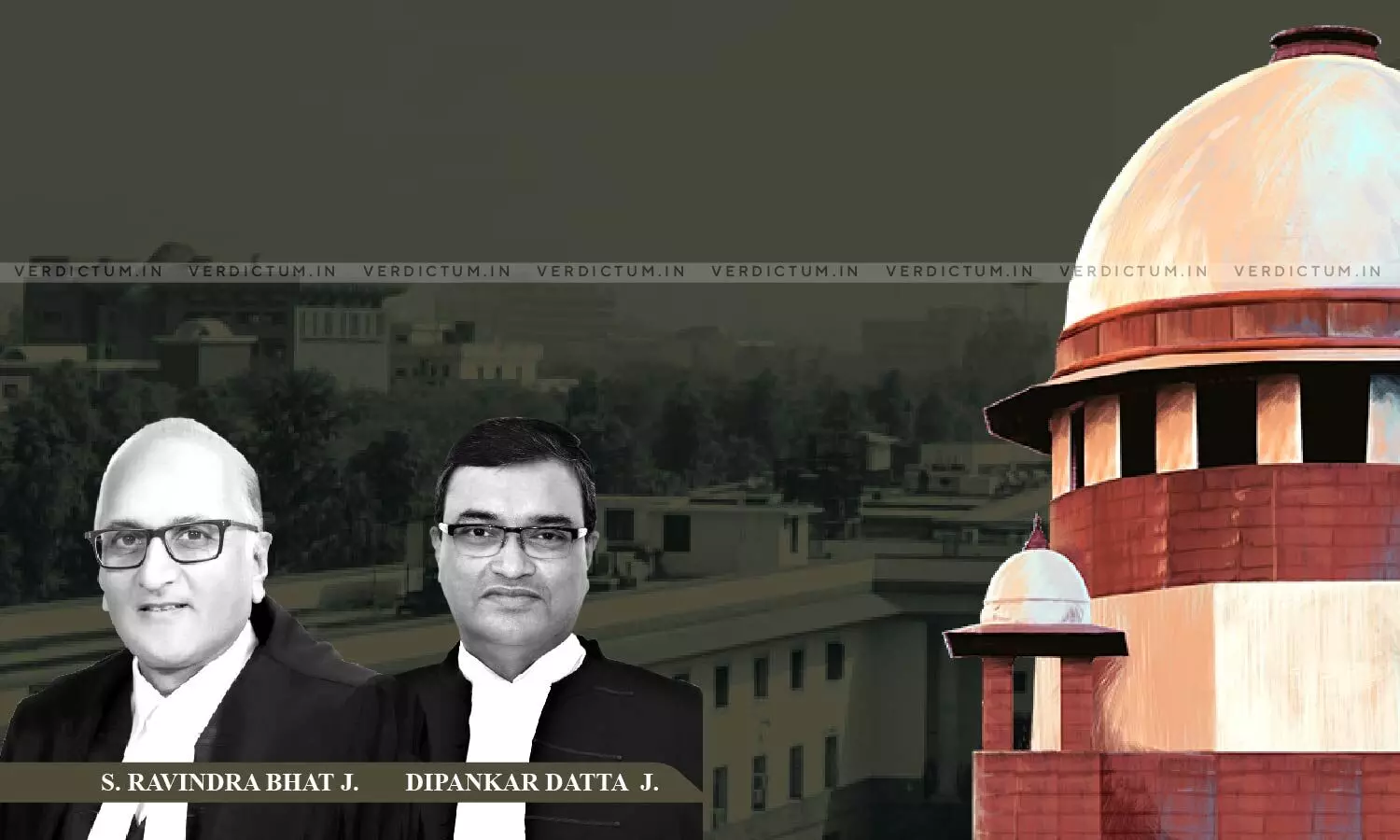
Incarceration Has Deleterious Effects Where Accused Belongs To Weakest Economic Strata- SC Grants Bail To Man In Jail For 7 Years
 |
|The Supreme Court while granting bail to a man who was in jail for over seven years said that the incarceration has deleterious effects where the accused belongs to the weakest economic strata.
The Court was dealing with an appeal filed by the accused who was booked for committing offences punishable under Sections 20, 25, and 29 of the Narcotic Drugs and Psychotropic Substances Act, 1985 (NDPS Act).
The two-Judge Bench comprising Justice S. Ravindra Bhat and Dipankar Datta held, “There is a further danger of the prisoner turning to crime, “as crime not only turns admirable, but the more professional the crime, more honour is paid to the criminal”22 (also see Donald Clemmer’s ‘The Prison Community’ published in 194023). Incarceration has further deleterious effects - where the accused belongs to the weakest economic strata: immediate loss of livelihood, and in several cases, scattering of families as well as loss of family bonds and alienation from society. The courts therefore, have to be sensitive to these aspects (because in the event of an acquittal, the loss to the accused is irreparable), and ensure that trials – especially in cases, where special laws enact stringent provisions, are taken up and concluded speedily.”
The Bench noted that the danger of unjust imprisonment, is that inmates are at risk of “prisonisation” a term described by the Kerala High Court in A Convict Prisoner v. State 1993 Cri LJ 3242 as “a radical transformation”.
Advocate Tanya Agarwal appeared on behalf of the appellant i.e., the accused while Additional Solicitor General of India Vikramjit Banerjee appeared on behalf of the respondent i.e., the State.
Facts of the Case -
The appellant complained that his application for bail ought not to have been rejected by the Delhi High Court considering that he suffered incarceration for over 7 years and the criminal trial hardly reached the half-way mark. At the time of his arrest, the appellant was 23 years and he was not found in possession of the narcotic drug but the other co-accused were.
Earlier, based on secret information received by the police, a raid was conducted, leading to arrest of four accused persons who were alleged to be in possession of 180 kilograms of ganja. During investigation, one of the accused was taken to Chhattisgarh for identification of co-accused persons and at his instance, the appellant was arrested.
The Supreme Court in view of the above facts observed, “Long back, in Hussainara Khatoon v. Home Secy., State of Bihar this court had declared that the right to speedy trial of offenders facing criminal charges is “implicit in the broad sweep and content of Article 21 as interpreted by this Court”.”
The Court noted that the grant of bail on ground of undue delay in trial, cannot be said to be fettered by Section 37 of the NDPS Act, given the imperative of Section 436A and in this regard, the appellant deserves to be enlarged on bail.
“Before parting, it would be important to reflect that laws which impose stringent conditions for grant of bail, may be necessary in public interest; yet, if trials are not concluded in time, the injustice wrecked on the individual is immeasurable. Jails are overcrowded and their living conditions, more often than not, appalling. According to the Union Home Ministry’s response to Parliament, the National Crime Records Bureau had recorded that as on 31st December 2021, over 5,54,034 prisoners were lodged in jails against total capacity of 4,25,069 lakhs in the country. Of these 122,852 were convicts; the rest 4,27,165 were undertrials”, asserted the Court.
Accordingly, the Court allowed the appeal and granted bail to the appellant.
Cause Title- Mohd Muslim @ Hussain v. State (NCT of Delhi)